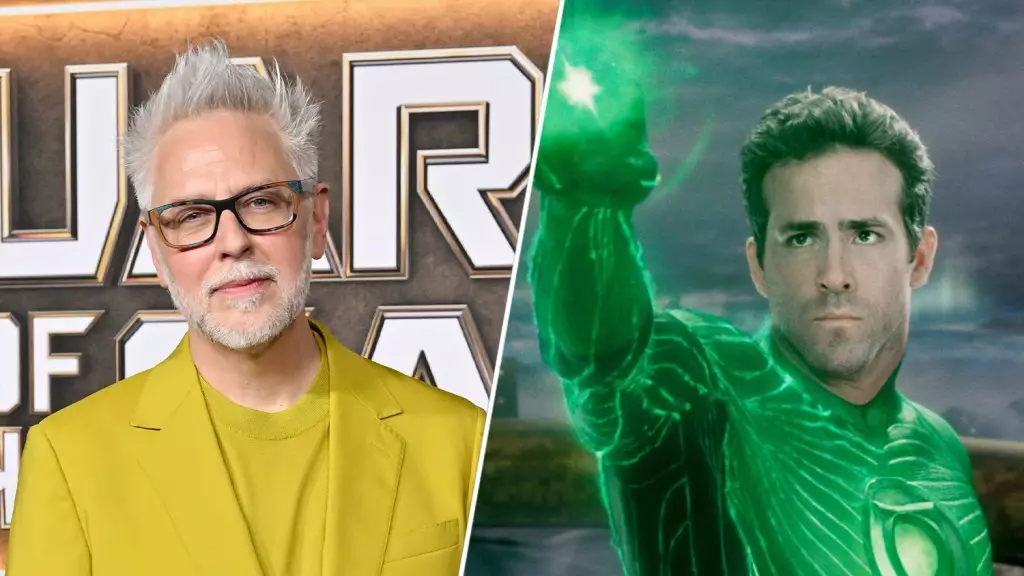Ryan Reynolds has become synonymous with the role of Deadpool, but his past as the Green Lantern continues to resonate, albeit for the wrong reasons. Following the initial promise of the 2011 DC adaptation of Green Lantern, fans were left disappointed by its critical and commercial performance. Fast forward to present times, and even James Gunn, the newly appointed chief at DC Studios, found himself rebuffed in his playful attempts to lure Reynolds back into the costume of Hal Jordan. Gunn’s anecdote reflects a humorous yet firm stance taken by Reynolds—a clear indication that the actor has no intention of revisiting a character marred by a lackluster film history.
The Green Lantern was a critical flop, earning a mere 25% on Rotten Tomatoes and generating $237 million globally, far less than its projected success. Reynolds’ portrayal was overshadowed by a poorly received script and unimpressive visual effects that failed to captivate audiences. Rather ironically, the film’s most significant outcome was Reynolds meeting his future wife, Blake Lively, which adds an unexpected silver lining to the mixed experience. The film’s failure left an indelible mark not only on its box office figures but also on Reynolds’ career trajectory. Thus, his reluctance to don the power ring again is not unfounded; it serves as a protective boundary between his past and the present success he has cultivated as an actor.
The landscape of superhero films is continuously evolving. With James Gunn at the helm, the revitalization of the DC cinematic universe is underway, including the development of the new Green Lantern series on HBO Max, titled “Lanterns.” This series concept suggests a fresh approach to the Green Lantern mythology, aiming to explore deeper narratives and character development that previous adaptations may have overlooked. The involvement of notable writers like Chris Mundy, Damon Lindelof, and Tom King implies a serious commitment to storytelling, which could signal a significant departure from what fans have previously experienced.
Reynolds’ disinterest in revisiting the Green Lantern saga reveals more than just an actor’s choice; it reflects a broader trend in the comic book film industry, where creative minds are increasingly seeking unique and innovative portrayals. Reynolds has found his niche in portraying characters with irreverent humor and profound complexity, a path he has completely embraced with the Deadpool franchise. By moving away from the expectations set by past roles, he allows himself to explore new horizons in a genre that continuously reshapes itself.
As Reynolds solidifies his position as a powerhouse superstar in the realm of superhero films, the question remains: can other characters transcend their initial failures? With new creatives at DC Studios and a fresh slate of storytelling in development, there is always potential for redemption. For Reynolds, while Green Lantern may forever remain a chapter he chooses not to revisit, it signifies the perfect contrast to his successful portrayal of Deadpool. As audiences anticipate the future of superhero narratives, Reynolds’ journey serves as a reminder of the complexities and unpredictable nature of Hollywood’s leading roles.


Leave a Reply